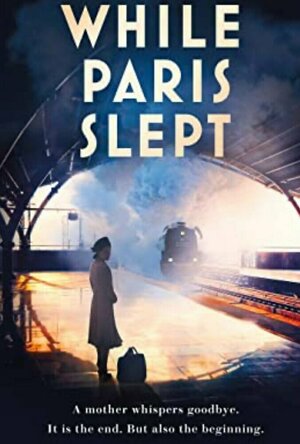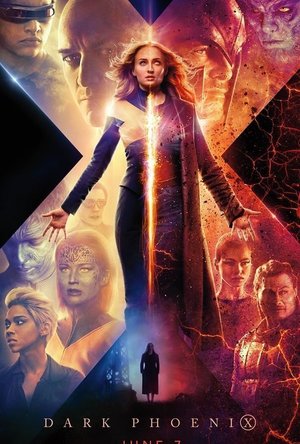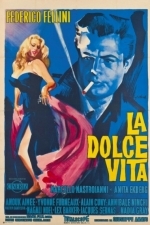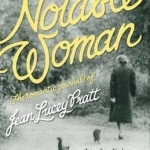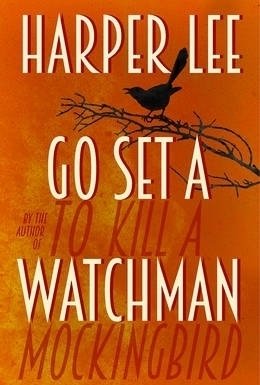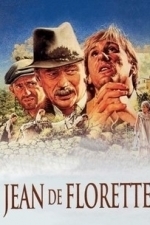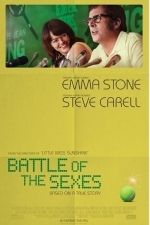Search
Search results
ClareR (5885 KP) rated While Paris Slept in Books
Feb 23, 2023
While Paris Slept was really so much more than I expected. I didn’t expect to become so emotionally invested in all sides of this story, and I didn’t expect to cry quite as much as I did!
Jean Luc Beauchamp is put in an impossible situation as soon as the Nazis occupy France. He has a deformed hand, and if he shows any kind of weakness it could mean his death. But to stay working on the railways brands him as a collaborator. Someone who has facilitated the Holocaust.
So when a woman thrusts a tiny baby at him as she is put on a cattle truck, Jean Luc does the only thing he can do.
He and his girlfriend (and later, wife) begin a perilous journey , eventually settling in 1950’s California. In 1953, Jean Luc is questioned about his role in the war, and is told something that will change his life and that of his family forever.
We switch between the two timelines of wartime France and and the present day (1950’s) California and Paris.
It’s an unforgettable story of resilience, secrets and survival. All actions on both sides of the story were all for the love of a child. Oh, how I cried (this seems to be becoming more and more frequent lately!)!
Wonderful storytelling ❤️
Jean Luc Beauchamp is put in an impossible situation as soon as the Nazis occupy France. He has a deformed hand, and if he shows any kind of weakness it could mean his death. But to stay working on the railways brands him as a collaborator. Someone who has facilitated the Holocaust.
So when a woman thrusts a tiny baby at him as she is put on a cattle truck, Jean Luc does the only thing he can do.
He and his girlfriend (and later, wife) begin a perilous journey , eventually settling in 1950’s California. In 1953, Jean Luc is questioned about his role in the war, and is told something that will change his life and that of his family forever.
We switch between the two timelines of wartime France and and the present day (1950’s) California and Paris.
It’s an unforgettable story of resilience, secrets and survival. All actions on both sides of the story were all for the love of a child. Oh, how I cried (this seems to be becoming more and more frequent lately!)!
Wonderful storytelling ❤️
Gareth von Kallenbach (980 KP) rated X-Men: Dark Phoenix (2019) in Movies
Jul 2, 2019
Ever since X-men First Class was released, Jean Gray one of the more pivotal characters in the X-Men universe has been surprisingly absent. Often portrayed at not only having psychic abilities that rivals Charles Xavier, but also attracted the admiration of both Cyclops and Wolverine. While she was a staple in the original film and subsequent sequels her first appearance in the newest series did not occur until X-Men Apocalypse. With the release of Dark Phoenix, we had hoped to finally get an opportunity to explore a bit of her background story and her transformation into Dark Phoenix.
Dark Phoenix begins on a small country road where a very young Jean Grey is arguing with her parents over what music to listen to. In traditional parent fashion, her mother reminds her that the driver is the one who chooses the music and when she is old enough to drive she can choose her own music. This small disagreement turns into a deadly confrontation, when the young Jean, unable to control her vast powers causes her mom to fall asleep at the wheel, resulting in a head on collision killing both her parents. The doctors are amazed that this young girl has survived without a single scratch and a young Charles Xavier arrives to take her to a place where she can be safe.
Fast Forward to the year 1992 where the space shuttle Endeavor, on a routine mission, encounters a cosmic entity that cripples it in space. The X-men, who are now looked at as heroes by most of the world are tasked to bring the astronauts safely home, it’s a dangerous mission, but one that Charles feels will further cement the hero status of his team and continue to grow trust between mutants and humans alike. The mission goes surprisingly without incident until Jean and Night Crawler attempt to rescue the final remaining astronaut from the doomed shuttle. Night Crawler quickly teleports the astronaut to safety, but Jean is caught by the full force of the cosmic entity, absorbing it completely and destroying the shuttle. The team scrambles to locate her, and with the help of Night Crawler are once again able to bring her back to the safety of the X-Jet. Relieved that she has somehow miraculously survived the encounter the team is unaware that Jean and themselves will never be the same again.
As we’ve come to expect from the previous X-men movies, a star-studded cast leads the way. Familiar cast members such as Jennifer Lawrence (Raven), Tye Sheridan (Cyclops) and James McAvoy (Charles Xavier) are joined once again by Sophie Turner as the iconic Jean Grey. Sophie does an incredible job at bringing out both the uncertainty in her character and the extreme anger and rage that flows through her. Unfortunately for such a major character the movie only briefly touches the surface of who Jean Grey really is. The movie, even from the start tends to focus on Jean as a dangerous and angry young lady, unable to control her emotions which will ultimately open the doorway to her alter ego Dark Phoenix. The movie unfortunately treats her as a one-off character and skips most of her back story choosing to focus only on her Dark Phoenix personality. This leaves the audience with no understanding of the person she was prior to the transformation, only seeing Jean as an uncontrollable child who has now become an uncontrollable adult with “off the chart” powers. While Charles and other members of the team try to assure those around them (and the audience seated in the theaters) that Jean is a good person, a person worth saving, there is very little in the movie that allows us to sympathize with her plight. It ultimately villainizes her and leaves much of the cast (and the audience) wondering whether destroying her is the right choice for all humankind.
Visually Dark Phoenix is a masterpiece, whether it’s the awe-inspiring deepness of space, or the incredible visual effects as the mutants square off against each other with their powers. Buildings topple, subway cars are pulled from underground and general mayhem takes the stage. This is certainly one of the more action-packed movies in the series and getting the opportunity to watch some of our favorite mutants square off against one another is enough to excite even the ones least interested in the franchise.
Dark Phoenix as one might expect is also one of the darkest of the x-men movies. Unlike its other Marvel film counterparts, there is no levity in the movie at all. There are scenes that are heartwarming, but the movie takes itself very seriously. Even in a similarly dark Marvel movie Endgame there were moments that would make you laugh regardless of how dire the situation was, Dark Phoenix is not like this at all. It carries a weight to it that ensures that not only the people on screen, but those in the audience understand how truly dire the situation is. It detracts a bit from the spirit of the source material it derives from and could potentially alienate its core audience. This is a very adult movie, that deals with some very adult themes and parents might want to think twice before taking their youngest to see this film. With the X-Men franchise finally joining the MCU, it’ll be interesting to see how movies down the road treat these characters.
Dark Phoenix represents the end of an X-Men era that has existed in both its original and First-Class installments for over twenty years. The acquisition of Fox by Disney now brings this venerable franchise to the MCU family along with its cast of seemingly endless characters. While the movie is certainly better than Apocalypse, it can’t quite reach the heights of either First-Class or Days of Futures Past. The Dark Phoenix storyline does a good job staying closer to its comic book roots than its previous outing but rushes the origin and character development of Jean far more than she deserves. It’s a fine ending to the series as a whole but can’t quite deliver in all the ways I hoped it would.
Dark Phoenix begins on a small country road where a very young Jean Grey is arguing with her parents over what music to listen to. In traditional parent fashion, her mother reminds her that the driver is the one who chooses the music and when she is old enough to drive she can choose her own music. This small disagreement turns into a deadly confrontation, when the young Jean, unable to control her vast powers causes her mom to fall asleep at the wheel, resulting in a head on collision killing both her parents. The doctors are amazed that this young girl has survived without a single scratch and a young Charles Xavier arrives to take her to a place where she can be safe.
Fast Forward to the year 1992 where the space shuttle Endeavor, on a routine mission, encounters a cosmic entity that cripples it in space. The X-men, who are now looked at as heroes by most of the world are tasked to bring the astronauts safely home, it’s a dangerous mission, but one that Charles feels will further cement the hero status of his team and continue to grow trust between mutants and humans alike. The mission goes surprisingly without incident until Jean and Night Crawler attempt to rescue the final remaining astronaut from the doomed shuttle. Night Crawler quickly teleports the astronaut to safety, but Jean is caught by the full force of the cosmic entity, absorbing it completely and destroying the shuttle. The team scrambles to locate her, and with the help of Night Crawler are once again able to bring her back to the safety of the X-Jet. Relieved that she has somehow miraculously survived the encounter the team is unaware that Jean and themselves will never be the same again.
As we’ve come to expect from the previous X-men movies, a star-studded cast leads the way. Familiar cast members such as Jennifer Lawrence (Raven), Tye Sheridan (Cyclops) and James McAvoy (Charles Xavier) are joined once again by Sophie Turner as the iconic Jean Grey. Sophie does an incredible job at bringing out both the uncertainty in her character and the extreme anger and rage that flows through her. Unfortunately for such a major character the movie only briefly touches the surface of who Jean Grey really is. The movie, even from the start tends to focus on Jean as a dangerous and angry young lady, unable to control her emotions which will ultimately open the doorway to her alter ego Dark Phoenix. The movie unfortunately treats her as a one-off character and skips most of her back story choosing to focus only on her Dark Phoenix personality. This leaves the audience with no understanding of the person she was prior to the transformation, only seeing Jean as an uncontrollable child who has now become an uncontrollable adult with “off the chart” powers. While Charles and other members of the team try to assure those around them (and the audience seated in the theaters) that Jean is a good person, a person worth saving, there is very little in the movie that allows us to sympathize with her plight. It ultimately villainizes her and leaves much of the cast (and the audience) wondering whether destroying her is the right choice for all humankind.
Visually Dark Phoenix is a masterpiece, whether it’s the awe-inspiring deepness of space, or the incredible visual effects as the mutants square off against each other with their powers. Buildings topple, subway cars are pulled from underground and general mayhem takes the stage. This is certainly one of the more action-packed movies in the series and getting the opportunity to watch some of our favorite mutants square off against one another is enough to excite even the ones least interested in the franchise.
Dark Phoenix as one might expect is also one of the darkest of the x-men movies. Unlike its other Marvel film counterparts, there is no levity in the movie at all. There are scenes that are heartwarming, but the movie takes itself very seriously. Even in a similarly dark Marvel movie Endgame there were moments that would make you laugh regardless of how dire the situation was, Dark Phoenix is not like this at all. It carries a weight to it that ensures that not only the people on screen, but those in the audience understand how truly dire the situation is. It detracts a bit from the spirit of the source material it derives from and could potentially alienate its core audience. This is a very adult movie, that deals with some very adult themes and parents might want to think twice before taking their youngest to see this film. With the X-Men franchise finally joining the MCU, it’ll be interesting to see how movies down the road treat these characters.
Dark Phoenix represents the end of an X-Men era that has existed in both its original and First-Class installments for over twenty years. The acquisition of Fox by Disney now brings this venerable franchise to the MCU family along with its cast of seemingly endless characters. While the movie is certainly better than Apocalypse, it can’t quite reach the heights of either First-Class or Days of Futures Past. The Dark Phoenix storyline does a good job staying closer to its comic book roots than its previous outing but rushes the origin and character development of Jean far more than she deserves. It’s a fine ending to the series as a whole but can’t quite deliver in all the ways I hoped it would.
Olivier Assayas recommended La Dolce Vita (1960) in Movies (curated)
Olivier Assayas recommended Army of Shadows (L'Armée des ombres) (1969) in Movies (curated)
Hazel (1853 KP) rated A Notable Woman: The Romantic Journals of Jean Lucey Pratt in Books
May 25, 2017
Looooong
I received this book for free through Goodreads First Reads.
Whilst researching a previous book, Simon Garfield came across the diaries of Jean Lucey Pratt amongst journals collected during the Second World War for Mass Observation. Intrigued by her observations and character, Garfield became determined to learn more about her. After eventually receiving permission from Jean’s niece, he was able to read all forty-five of her diaries, edit them, and produce this huge manuscript for publication: A Notable Woman.
Jean began writing her journals in the April of 1925 at the young age of fifteen. Although she did not write everyday, she continued putting down her thoughts and experiences up until her death in 1986. Jean Lucey Pratt was not a celebrity, although she did write an, unfortunately, unsuccessful book; nor did she achieve anything spectacular during her lifetime. What makes her diaries worth publishing is the fact that she was “ordinary,” a woman who wrote not to impress other people, but to honestly express her emotions and opinions.
For the majority of her life Jean lived on her own in Burnham Beeches, Buckinghamshire, where she yearned for a husband. Her dreams of finding the perfect man yet only attracting a handful of lovers is both amusing and saddening. The most interesting part of her written records, however, has got to be the experiences of war. Unlike other diarist such as Anne Frank, who feared for their lives, or those that experienced the fighting up front, Jean provides the perspective of the average British citizen. She comments on the rationing, the blackout curtains as well as the political propaganda, providing her own opinions, which often changed as the war progressed. Jean amuses the reader by revealing she often slept through an air raid, only waking up at the sound of the All Clear.
The war ends midway through the book, thus delivering accounts of the latter half of her life, from career to ill health, incorporating in family events and, of course, her enormous horde of cats. Although a rather introverted, lonely individual, Jean’s relationship and love for her brother is often heartwarming. Separated by oceans and only seeing him every so many years, it is clear that the siblings are strongly supportive of each other. Jean often refers to her brother as Pooh (as in Winnie the Pooh), to which he responds by calling her Piglet.
Initially Jean did not intend to let anyone read her diaries but later began to imagine how other people would react to what she had written. She toyed with the idea of posthumous publication, but presumed only family and friends would read them – how wrong she was! Regardless of whether her diaries were to be viewed by outsiders or not, Jean usually referred to people by their initials. Whether she did this for a particular reason or merely to save time when writing remains debatable, however it does cause a bit of confusion when reading. Helpfully the editor, Garfield, has provided a character list that can be referred back to as needed.
Simon Garfield has done a magnificent job of compiling the diary entries together to produce an interesting, moving and occasionally amusing story about life during the 1900s. He has painstakingly sorted through handwritten entries, deciding what bits to omit and conducting further research in order to explain in footnotes the sections or references that would not make sense if left alone. Garfield has made the majority of Jean’s journals flow like a novel, only becoming erratic towards the end of her life when she would only write once every few months.
A Notable Woman gives a fantastic insight into the lives of ordinary people during an era of hardship and change. Readers are more likely to read an accurate description of the war and subsequent years in this book than in any emotionally detached textbook or biased account. Without a doubt this book is worth a read, although do not expect to be able to rush through it as some may do with a work of fiction. Garfield if highly praised for his efforts, and one hopes that Jean would be proud to finally have a writing success.
Whilst researching a previous book, Simon Garfield came across the diaries of Jean Lucey Pratt amongst journals collected during the Second World War for Mass Observation. Intrigued by her observations and character, Garfield became determined to learn more about her. After eventually receiving permission from Jean’s niece, he was able to read all forty-five of her diaries, edit them, and produce this huge manuscript for publication: A Notable Woman.
Jean began writing her journals in the April of 1925 at the young age of fifteen. Although she did not write everyday, she continued putting down her thoughts and experiences up until her death in 1986. Jean Lucey Pratt was not a celebrity, although she did write an, unfortunately, unsuccessful book; nor did she achieve anything spectacular during her lifetime. What makes her diaries worth publishing is the fact that she was “ordinary,” a woman who wrote not to impress other people, but to honestly express her emotions and opinions.
For the majority of her life Jean lived on her own in Burnham Beeches, Buckinghamshire, where she yearned for a husband. Her dreams of finding the perfect man yet only attracting a handful of lovers is both amusing and saddening. The most interesting part of her written records, however, has got to be the experiences of war. Unlike other diarist such as Anne Frank, who feared for their lives, or those that experienced the fighting up front, Jean provides the perspective of the average British citizen. She comments on the rationing, the blackout curtains as well as the political propaganda, providing her own opinions, which often changed as the war progressed. Jean amuses the reader by revealing she often slept through an air raid, only waking up at the sound of the All Clear.
The war ends midway through the book, thus delivering accounts of the latter half of her life, from career to ill health, incorporating in family events and, of course, her enormous horde of cats. Although a rather introverted, lonely individual, Jean’s relationship and love for her brother is often heartwarming. Separated by oceans and only seeing him every so many years, it is clear that the siblings are strongly supportive of each other. Jean often refers to her brother as Pooh (as in Winnie the Pooh), to which he responds by calling her Piglet.
Initially Jean did not intend to let anyone read her diaries but later began to imagine how other people would react to what she had written. She toyed with the idea of posthumous publication, but presumed only family and friends would read them – how wrong she was! Regardless of whether her diaries were to be viewed by outsiders or not, Jean usually referred to people by their initials. Whether she did this for a particular reason or merely to save time when writing remains debatable, however it does cause a bit of confusion when reading. Helpfully the editor, Garfield, has provided a character list that can be referred back to as needed.
Simon Garfield has done a magnificent job of compiling the diary entries together to produce an interesting, moving and occasionally amusing story about life during the 1900s. He has painstakingly sorted through handwritten entries, deciding what bits to omit and conducting further research in order to explain in footnotes the sections or references that would not make sense if left alone. Garfield has made the majority of Jean’s journals flow like a novel, only becoming erratic towards the end of her life when she would only write once every few months.
A Notable Woman gives a fantastic insight into the lives of ordinary people during an era of hardship and change. Readers are more likely to read an accurate description of the war and subsequent years in this book than in any emotionally detached textbook or biased account. Without a doubt this book is worth a read, although do not expect to be able to rush through it as some may do with a work of fiction. Garfield if highly praised for his efforts, and one hopes that Jean would be proud to finally have a writing success.
Hazel (1853 KP) rated A Notable Woman: The Romantic Journals of Jean Lucey Pratt in Books
Dec 7, 2018
<i>I received this book for free through Goodreads First Reads.</i>
Whilst researching a previous book, Simon Garfield came across the diaries of Jean Lucey Pratt amongst journals collected during the Second World War for Mass Observation. Intrigued by her observations and character, Garfield became determined to learn more about her. After eventually receiving permission from Jean’s niece, he was able to read all forty-five of her diaries, edit them, and produce this huge manuscript for publication: <i>A Notable Woman</i>.
Jean began writing her journals in the April of 1925 at the young age of fifteen. Although she did not write everyday, she continued putting down her thoughts and experiences up until her death in 1986. Jean Lucey Pratt was not a celebrity, although she did write an, unfortunately, unsuccessful book; nor did she achieve anything spectacular during her lifetime. What makes her diaries worth publishing is the fact that she was “ordinary,” a woman who wrote not to impress other people, but to honestly express her emotions and opinions.
For the majority of her life Jean lived on her own in Burnham Beeches, Buckinghamshire, where she yearned for a husband. Her dreams of finding the perfect man yet only attracting a handful of lovers is both amusing and saddening. The most interesting part of her written records, however, has got to be the experiences of war. Unlike other diarist such as Anne Frank, who feared for their lives, or those that experienced the fighting up front, Jean provides the perspective of the average British citizen. She comments on the rationing, the blackout curtains as well as the political propaganda, providing her own opinions, which often changed as the war progressed. Jean amuses the reader by revealing she often slept through an air raid, only waking up at the sound of the All Clear.
The war ends midway through the book, thus delivering accounts of the latter half of her life, from career to ill health, incorporating in family events and, of course, her enormous horde of cats. Although a rather introverted, lonely individual, Jean’s relationship and love for her brother is often heartwarming. Separated by oceans and only seeing him every so many years, it is clear that the siblings are strongly supportive of each other. Jean often refers to her brother as Pooh (as in <i>Winnie the Pooh</i>), to which he responds by calling her Piglet.
Initially Jean did not intend to let anyone read her diaries but later began to imagine how other people would react to what she had written. She toyed with the idea of posthumous publication, but presumed only family and friends would read them – how wrong she was! Regardless of whether her diaries were to be viewed by outsiders or not, Jean usually referred to people by their initials. Whether she did this for a particular reason or merely to save time when writing remains debatable, however it does cause a bit of confusion when reading. Helpfully the editor, Garfield, has provided a character list that can be referred back to as needed.
Simon Garfield has done a magnificent job of compiling the diary entries together to produce an interesting, moving and occasionally amusing story about life during the 1900s. He has painstakingly sorted through handwritten entries, deciding what bits to omit and conducting further research in order to explain in footnotes the sections or references that would not make sense if left alone. Garfield has made the majority of Jean’s journals flow like a novel, only becoming erratic towards the end of her life when she would only write once every few months.
<i>A Notable Woman</i> gives a fantastic insight into the lives of ordinary people during an era of hardship and change. Readers are more likely to read an accurate description of the war and subsequent years in this book than in any emotionally detached textbook or biased account. Without a doubt this book is worth a read, although do not expect to be able to rush through it as some may do with a work of fiction. Garfield if highly praised for his efforts, and one hopes that Jean would be proud to finally have a writing success.
Whilst researching a previous book, Simon Garfield came across the diaries of Jean Lucey Pratt amongst journals collected during the Second World War for Mass Observation. Intrigued by her observations and character, Garfield became determined to learn more about her. After eventually receiving permission from Jean’s niece, he was able to read all forty-five of her diaries, edit them, and produce this huge manuscript for publication: <i>A Notable Woman</i>.
Jean began writing her journals in the April of 1925 at the young age of fifteen. Although she did not write everyday, she continued putting down her thoughts and experiences up until her death in 1986. Jean Lucey Pratt was not a celebrity, although she did write an, unfortunately, unsuccessful book; nor did she achieve anything spectacular during her lifetime. What makes her diaries worth publishing is the fact that she was “ordinary,” a woman who wrote not to impress other people, but to honestly express her emotions and opinions.
For the majority of her life Jean lived on her own in Burnham Beeches, Buckinghamshire, where she yearned for a husband. Her dreams of finding the perfect man yet only attracting a handful of lovers is both amusing and saddening. The most interesting part of her written records, however, has got to be the experiences of war. Unlike other diarist such as Anne Frank, who feared for their lives, or those that experienced the fighting up front, Jean provides the perspective of the average British citizen. She comments on the rationing, the blackout curtains as well as the political propaganda, providing her own opinions, which often changed as the war progressed. Jean amuses the reader by revealing she often slept through an air raid, only waking up at the sound of the All Clear.
The war ends midway through the book, thus delivering accounts of the latter half of her life, from career to ill health, incorporating in family events and, of course, her enormous horde of cats. Although a rather introverted, lonely individual, Jean’s relationship and love for her brother is often heartwarming. Separated by oceans and only seeing him every so many years, it is clear that the siblings are strongly supportive of each other. Jean often refers to her brother as Pooh (as in <i>Winnie the Pooh</i>), to which he responds by calling her Piglet.
Initially Jean did not intend to let anyone read her diaries but later began to imagine how other people would react to what she had written. She toyed with the idea of posthumous publication, but presumed only family and friends would read them – how wrong she was! Regardless of whether her diaries were to be viewed by outsiders or not, Jean usually referred to people by their initials. Whether she did this for a particular reason or merely to save time when writing remains debatable, however it does cause a bit of confusion when reading. Helpfully the editor, Garfield, has provided a character list that can be referred back to as needed.
Simon Garfield has done a magnificent job of compiling the diary entries together to produce an interesting, moving and occasionally amusing story about life during the 1900s. He has painstakingly sorted through handwritten entries, deciding what bits to omit and conducting further research in order to explain in footnotes the sections or references that would not make sense if left alone. Garfield has made the majority of Jean’s journals flow like a novel, only becoming erratic towards the end of her life when she would only write once every few months.
<i>A Notable Woman</i> gives a fantastic insight into the lives of ordinary people during an era of hardship and change. Readers are more likely to read an accurate description of the war and subsequent years in this book than in any emotionally detached textbook or biased account. Without a doubt this book is worth a read, although do not expect to be able to rush through it as some may do with a work of fiction. Garfield if highly praised for his efforts, and one hopes that Jean would be proud to finally have a writing success.
Whatchareadin (174 KP) rated Go Set A Watchman in Books
May 10, 2018
I have been excited to read this book as soon as I heard about it. As soon as I could, I reserved my copy at the library. Many have questioned whether this is a sequel to To Kill a Mockingbird, or the first draft of the book, or something entirely separate. All I can say is that I enjoyed this book and now will go back to read [bc:To Kill a Mockingbird|2657|To Kill a Mockingbird|Harper Lee|https://d.gr-assets.com/books/1361975680s/2657.jpg|3275794].
Jean Louise Finch is 26 and currently living in New York City. She returns home to Maycomb Alabama to visit her beau, Henry Clinton, and her father Atticus Finch. In this visit Jean Louise "Scout" learns more about her family and the town she grew up in and especially about herself. Scout still has her same tomboy mannerisms we all love, doing whatever she wants to do and not caring what others think.
Jean Louise is one who just sees people and not so much color. Living in the South during this time, it's hard to make that distinction. She thought her father was the same. I see him as a man who vows to always do the right things no matter who the person. Atticus and Scout get the opportunity to get to know each other as adults with their own opinions and ideas, they discover they are alike in many way and in way very different.
It's interesting to see the dynamic between a parent and a child after they are both adults. And the child is able to think on their own and not they way their parents choose for them. My only problem with finishing this book, is now, I want to know more. Will Jean Louise marry Henry Clinton? I would like to know what kind of impact she is going to have on Maycomb, AL. And will she end up moving back there?
Jean Louise Finch is 26 and currently living in New York City. She returns home to Maycomb Alabama to visit her beau, Henry Clinton, and her father Atticus Finch. In this visit Jean Louise "Scout" learns more about her family and the town she grew up in and especially about herself. Scout still has her same tomboy mannerisms we all love, doing whatever she wants to do and not caring what others think.
Jean Louise is one who just sees people and not so much color. Living in the South during this time, it's hard to make that distinction. She thought her father was the same. I see him as a man who vows to always do the right things no matter who the person. Atticus and Scout get the opportunity to get to know each other as adults with their own opinions and ideas, they discover they are alike in many way and in way very different.
It's interesting to see the dynamic between a parent and a child after they are both adults. And the child is able to think on their own and not they way their parents choose for them. My only problem with finishing this book, is now, I want to know more. Will Jean Louise marry Henry Clinton? I would like to know what kind of impact she is going to have on Maycomb, AL. And will she end up moving back there?
Kirk Bage (1775 KP) rated Jean De Florette (1986) in Movies
Feb 4, 2021
The second in the series of films you would recommend to a visiting alien species in order to explain humanity. This is an effort to try and engage followers of The Wasteland a little more, both via WordPress on the actual page and through the instagram account thewasteland.art.blog
If you have an idea which film or films you would choose to explain the complex emotions and motivations of humanity then just leave a comment below. If I like your suggestion enough I will include it in the series. We are thinking big, complex storytelling with tons of heart, passion and soul. No need to explain it, let the film stand for itself!
No. 2 Jean de Florette – Claude Berri, (1986) – Switzerland, France, Italy
If you have an idea which film or films you would choose to explain the complex emotions and motivations of humanity then just leave a comment below. If I like your suggestion enough I will include it in the series. We are thinking big, complex storytelling with tons of heart, passion and soul. No need to explain it, let the film stand for itself!
No. 2 Jean de Florette – Claude Berri, (1986) – Switzerland, France, Italy
David McK (3562 KP) rated Lift (2024) in Movies
Mar 21, 2024
Heist movie mainly starring Kevin Hart (in a mostly light hearted role) and Gugu Mbatha-Raw as the two leads (with room for the likes of Sam Worthington, Jean Reno and Vincent d'Onofrio most noticeably), with the former a master thief and the latter an intelligence agent - each of whom previously fell for the other, when both undercover - who have to put aside their past differences and lead a heist on board an aircraft in flight (hence the double meaning behind the name 'lift'), transporting gold to a terrorist.
I watched this mainly so I could play spot-the-location (some of it being filmed in my home country of Northern Ireland), but have to say it was also better than I was expecting!
I watched this mainly so I could play spot-the-location (some of it being filmed in my home country of Northern Ireland), but have to say it was also better than I was expecting!
Bob Mann (459 KP) rated Battle of the Sexes (2016) in Movies
Sep 29, 2021
Tennis and sex, but without the grunting.
Here’s a good test of someone’s age…. ask the question “Billie-Jean?”. Millennials will probably come back with “Huh?”; those in their 30’s or 40’s might come back with “Michael Jackson!”; those older than that will probably reply “King!”.
“Battle of the Sexes” (which I just managed to catch before it left cinemas) tells the true-life story of US tennis star Billie-Jean King (Emma Stone, “La La Land“). The year is 1973 and Billie-Jean is riding high as the Number 1 female tennis player. She is a feminist; she is married (to hunk Larry – no not that one – King played by Austin Stowell (“Whiplash“, “Bridge of Spies“)); …. and she is also attracted to women, not something she has yet acted on. That all changes when her path crosses with LA-hairdresser Marilyn (Andrea Riseborough, “Birdman“, “Oblivion”).
But this is a side story: the main event is a bet made by aging ex-star Bobby Riggs (Steve Carell, “Foxcatcher“); that – even at his age – as a man he could beat the leading female tennis player of the day.
The film is gloriously retro, starting with the old-school 20th Century Fox production logo. And it contains breathtakingly sexist dialogue by writer Simon Beaufoy (“Everest“, “The Full Monty”). Surely men couldn’t have been so crass and outrageous in the 70’s? Sorry ladies, but the answer is yes, and the film is testament to how far women’s rights have come in 50 years.
This is a tour de force in acting from both Emma Stone and Steve Carell, particularly the latter: a scene where Carell tries to re-engage with his estranged wife (Elisabeth Shue, “Leaving Las Vegas”) is both nuanced and heart-breaking. Stone’s performance is also praiseworthy, although it feels slightly less so as it is an impersonation of a (relatively) well-known figure: this is extremely well-studied though, right down to her strutting walk around the court which I had both forgotten and was immediately again reminded of.
One of my favourite movie awards are the Screen Actor’s Guild (SAG) “cast” awards that celebrate ensemble performances, and here is a film that should have been nominated (it unfortunately wasn’t). Andrea Riseborough; Natalie Morales (as fellow tennis player Rosie Casals); comedian Sarah Silverman (“A Million Ways to Die in the West“), almost unrecognisable as the brash publicist Gladys Heldman; Bill Pullman as LTA head Jack Kramer; the great Alan Cumming (“The Good Wife”) as the team’s flamboyant, gay, costume designer; Lewis Pullman as Riggs’s son Larry; Jessica McNamee (magnetic eyes!) as King’s Australian tennis nemesis Margaret Court. All bounce off the leads, and each other, just beautifully.
Cinematography by Linus Sandgren (“La La Land“) and editing by Pamela Martin (“Little Miss Sunshine”) unite to deliver one of the most sexually charged haircuts you are ever likely to see on the screen. For those put off by this aspect of the storyline, the “girl-on-girl action” is pretty tastefully done and not overly graphic: it’s mostly “first-base” stuff rather than “third-base”!
“What a waste of a lovely night”. Marilyn (Andrea Riseborough) and Billie-Jean (Emma Stone) get serious.
Directed with panache by the co-directors of the 2006 smash “Little Miss Sunshine” – Jonathan Dayton and Valerie Faris – all in all it’s a delight, especially for older audiences who will get a blast of nostalgia from days when sports were still played at a slightly more leisurely pace… and definitely without the grunting.
“Battle of the Sexes” (which I just managed to catch before it left cinemas) tells the true-life story of US tennis star Billie-Jean King (Emma Stone, “La La Land“). The year is 1973 and Billie-Jean is riding high as the Number 1 female tennis player. She is a feminist; she is married (to hunk Larry – no not that one – King played by Austin Stowell (“Whiplash“, “Bridge of Spies“)); …. and she is also attracted to women, not something she has yet acted on. That all changes when her path crosses with LA-hairdresser Marilyn (Andrea Riseborough, “Birdman“, “Oblivion”).
But this is a side story: the main event is a bet made by aging ex-star Bobby Riggs (Steve Carell, “Foxcatcher“); that – even at his age – as a man he could beat the leading female tennis player of the day.
The film is gloriously retro, starting with the old-school 20th Century Fox production logo. And it contains breathtakingly sexist dialogue by writer Simon Beaufoy (“Everest“, “The Full Monty”). Surely men couldn’t have been so crass and outrageous in the 70’s? Sorry ladies, but the answer is yes, and the film is testament to how far women’s rights have come in 50 years.
This is a tour de force in acting from both Emma Stone and Steve Carell, particularly the latter: a scene where Carell tries to re-engage with his estranged wife (Elisabeth Shue, “Leaving Las Vegas”) is both nuanced and heart-breaking. Stone’s performance is also praiseworthy, although it feels slightly less so as it is an impersonation of a (relatively) well-known figure: this is extremely well-studied though, right down to her strutting walk around the court which I had both forgotten and was immediately again reminded of.
One of my favourite movie awards are the Screen Actor’s Guild (SAG) “cast” awards that celebrate ensemble performances, and here is a film that should have been nominated (it unfortunately wasn’t). Andrea Riseborough; Natalie Morales (as fellow tennis player Rosie Casals); comedian Sarah Silverman (“A Million Ways to Die in the West“), almost unrecognisable as the brash publicist Gladys Heldman; Bill Pullman as LTA head Jack Kramer; the great Alan Cumming (“The Good Wife”) as the team’s flamboyant, gay, costume designer; Lewis Pullman as Riggs’s son Larry; Jessica McNamee (magnetic eyes!) as King’s Australian tennis nemesis Margaret Court. All bounce off the leads, and each other, just beautifully.
Cinematography by Linus Sandgren (“La La Land“) and editing by Pamela Martin (“Little Miss Sunshine”) unite to deliver one of the most sexually charged haircuts you are ever likely to see on the screen. For those put off by this aspect of the storyline, the “girl-on-girl action” is pretty tastefully done and not overly graphic: it’s mostly “first-base” stuff rather than “third-base”!
“What a waste of a lovely night”. Marilyn (Andrea Riseborough) and Billie-Jean (Emma Stone) get serious.
Directed with panache by the co-directors of the 2006 smash “Little Miss Sunshine” – Jonathan Dayton and Valerie Faris – all in all it’s a delight, especially for older audiences who will get a blast of nostalgia from days when sports were still played at a slightly more leisurely pace… and definitely without the grunting.
